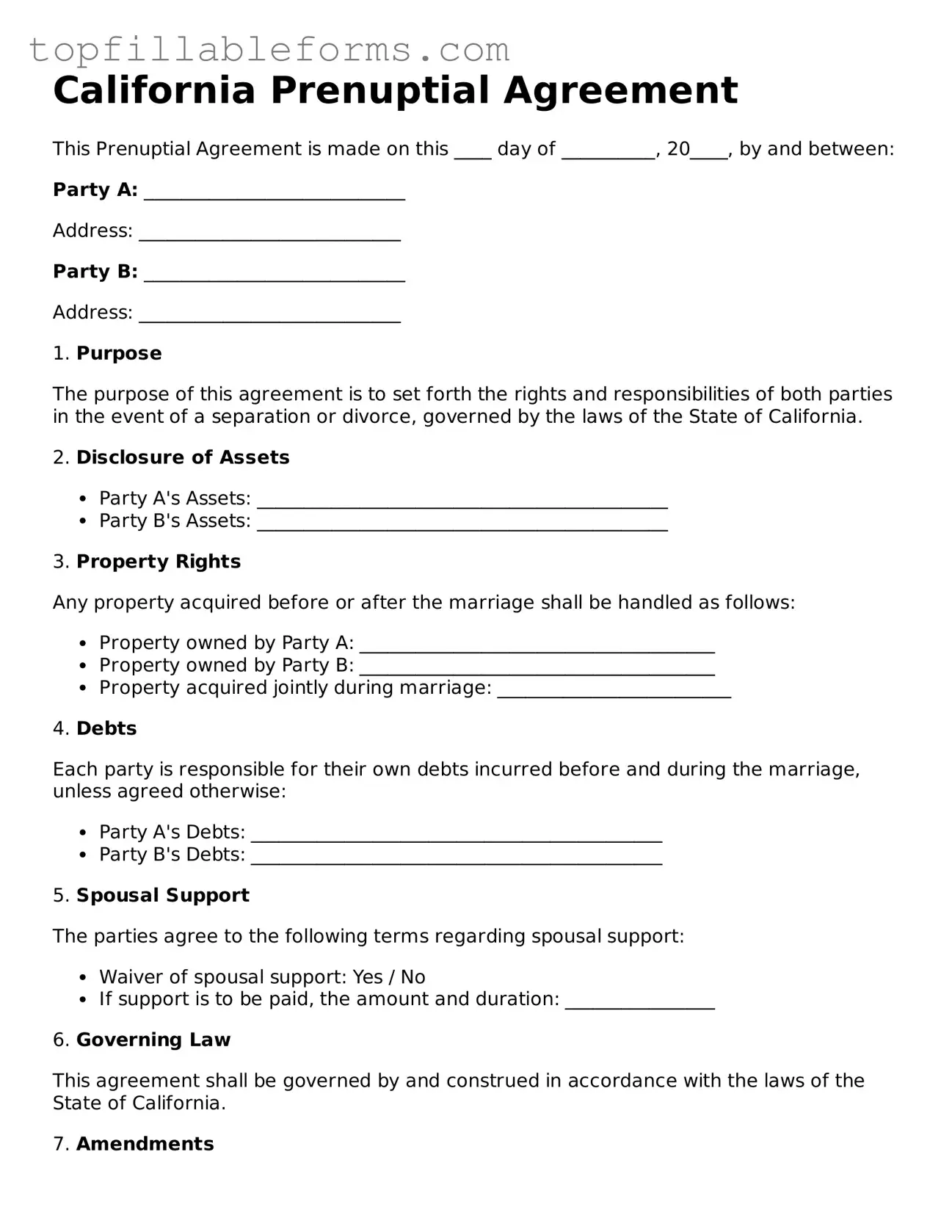Attorney-Verified Prenuptial Agreement Template for California
A California Prenuptial Agreement form is a legal document that outlines the financial and personal rights of each partner before entering into marriage. This agreement serves to protect individual assets and clarify responsibilities, ensuring both parties have a mutual understanding of their financial arrangements. By addressing these matters upfront, couples can foster a sense of security and transparency in their relationship.
Open Prenuptial Agreement Editor Here

Attorney-Verified Prenuptial Agreement Template for California
Open Prenuptial Agreement Editor Here
Finish the form now and be done
Finish your Prenuptial Agreement online by editing, saving, and downloading fast.
Open Prenuptial Agreement Editor Here
or
▼ PDF File
